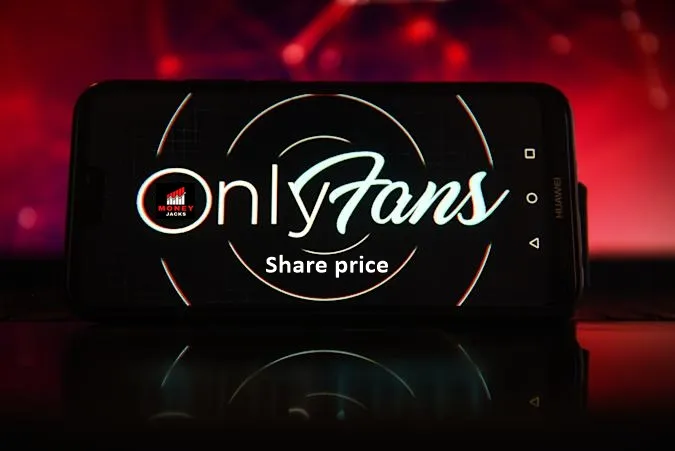Webull vs E-Trade, two of the biggest names in investing, are both powered by the same goal: making stock trading easier and more accessible to everyone, including first-time investors who have no idea what they’re doing or even how to buy stocks.
That said, Webull and E-Trade might appeal to slightly different audiences with their different approaches to investing. if you’re trying to choose between the two as your stock trading platform, here’s how they compare side by side.
Table of Contents
Which is the best platform for Beginners webull or etrade ?
Is webull better than etrade: If you’re just starting, Webull may be a better choice for you. It offers lower trading commissions and no-account minimums,
but its stock selection tool isn’t as intuitive as E-Trade’s and it lacks some of E-Trade’s educational resources.
Additionally, unlike with an online broker like Schwab or Fidelity, Webull doesn’t offer personalized financial advice (though it plans too soon).
If that’s something you want or need at a low cost and don’t mind opening accounts on more than one platform consider Robinhood instead.
Webull vs. E-Trade: Mobile app and trading platforms
If you’re looking for a broker with trading platforms that look and feel more like mobile apps, Webull is your best bet. It offers two versions of its app one for web users and one for iOS users.
While we’re not huge fans of either version, they’re miles ahead of E-Trade in terms of UX design.
For example, Webull makes it easy to find the market indexes you’re interested in, plus information about ETFs is only a few clicks away. When it comes to research options, Webull users have their pick from Morningstar or Google Finance.
Cost & Commissions
After you buy a stock, a broker typically charges a flat fee for his services and then earns additional money by taking a percentage of your trade.
The flat fee is known as an exchange access fee or flat commission. it costs $4.95 at TD Ameritrade, $6.95 at Fidelity Investments, and $6.95 at Merrill Edge, though it’s waived if you make more than 20 trades per quarter.
That’s why brokerage firms tout the cheap commissions you only pay them when you buy shares of stock.
When you sell the stock, a brokerage firm earns money by charging you either a flat fee or a percentage of your trade. As is true with many other financial products and services, brokers also earn money through so-called churning encouraging clients to trade as often as possible. This can mean trading fees on top of trading fees, since each time you buy or sell shares of stock, you’re charged yet another commission for the act of buying or selling them.
Deposits & Withdrawals at etrade vs webull
Concerning both features, these brokers are similar. With Webull and E-TRADE, clients can deposit funds from their bank accounts by using ACH transfers (Automated Clearing House), which usually take 3 to 5 business days.
The same goes for withdrawals; you’ll need to wait a few days before your money is available in your account again.
The only difference between these two brokers is that
Webull doesn’t have any fees for deposits or withdrawals,
while E-TRADE does charge $20 per transfer.
Webull vs. E-Trade: Investments available
Online investment platforms are very similar in design, and you will likely feel at home with either Webull or E-Trade once you create an account.
Once you have an account open, you can start investing in a variety of funds. Both platforms offer access to many of the same investments,
but it is important to realize that certain types of accounts may not be available on each platform.
However, if your goal is to make conservative investments, then either option should do just fine.
The most notable difference between Webull vs E-Trade is that we are located on different coasts.
E-Trade’s headquarters are located in Arlington while Webull is headquartered in New York City.
Webull vs. E-Trade: Account types available
Webull vs E-Trade both offer investors several account types. While both firms offer individual, joint, trust, and retirement accounts, there are some differences in each firm’s lineup.
For example, Webull does not currently offer an IRA. you must invest for retirement using a taxable account.
On top of that, both Webull and E-TRADE offer a few different savings products (CDs and money market accounts), but their offerings differ slightly from each other.
Pros & Cons of Each Broker
- Webull vs E-Trade annual fees are in line with what you might expect from a discount brokerage.
- Webull, which doesn’t have an account minimum, charges $0 to open an account and $0 per trade.
- E-Trade, on the other hand, has a $500 minimum deposit and charges$0 per trade for stock trades.
- The good news is that E-Trade waives its monthly fee if you keep at least $25,000 in your account; otherwise, it’ll charge you $6.95 each month.
Webull vs E-TRADE Key Features
- Webull lets investors trade stocks, options, ETFs, and cryptocurrencies while maintaining a free and comprehensive research platform.
- E-TRADE focuses on brokerages. It offers standard brokerage services, such as online stock trading, and market analysis to clients.
- Both companies offer mobile apps that users can access on their smartphones or tablets.
- You can use these apps to check your stock performance at any time, even when you’re away from your computer or at home.
- Each company charges fees for trades conducted through its platforms as well as
- Commissions on each trade made with an independent third-party broker or exchange (NYSE, NASDAQ).
- In addition to trading tools and services available on its website and mobile app,
- Webull also provides investors with daily market recaps in several categories.
Etrade and webull Fees
[table id=11 /]Etrade vs webull reddit
Check reddit discussion for both of the brokers here etrade vs webull reddit
CoView Post
https://moneyjacks.com/webull-vs-etrade-2022-is-webull-better-than-etrade/nclusion
Webull isn’t a new brokerage but it is relatively new to most people, and as such,
we have yet to see any real user reviews or comparisons between Webull and other brokerages like Fidelity or E-TRADE.
However, if I had to make an educated guess based on Webull’s features and design alone,
I would say that it would compare favourably with options like Fidelity and Charles Schwab for more tech-savvy users.
That being said, since these three companies are quite different from one another,
there are bound to be some key differences that could make all of them good fits for different kinds of investors.












